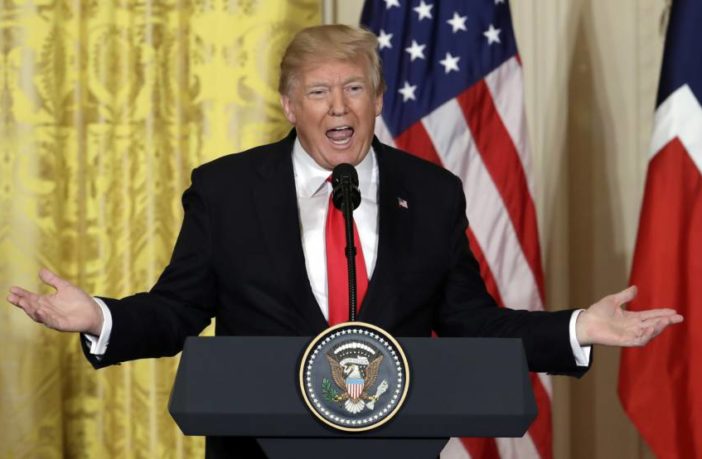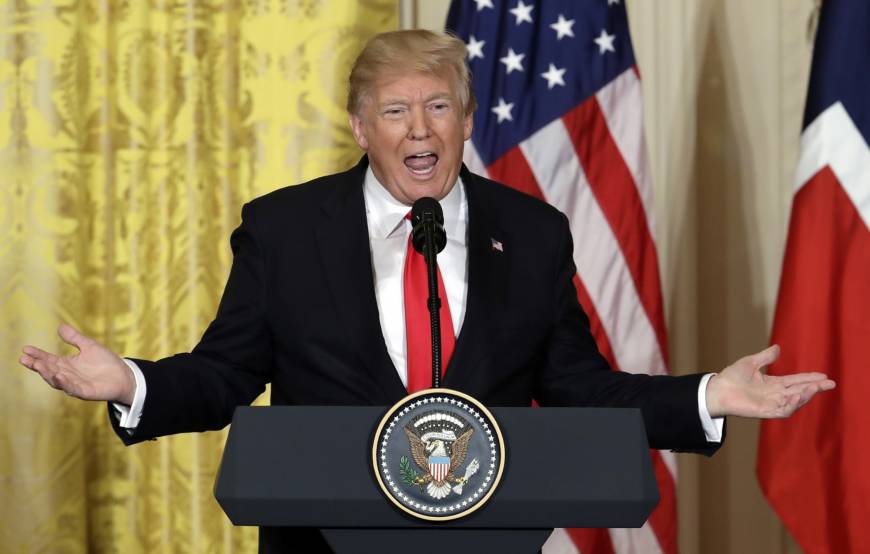Al Monitor
Bryant Harris
The Donald Trump administration today unveiled a budget blueprint for next year that calls for slashing the US contribution to the United Nations mission in Lebanon by almost half while pursuing similar cuts to international peacekeeping missions around the world.
The State Department budget proposal for fiscal year 2019 seeks a 42% cut over fiscal 2017’s request for the UN Interim Force in Lebanon (UNIFIL), from $146.1 million to $84.2 million. Funding for UN missions in the Golan Heights, Western Sahara and Cyprus is also to be slashed.
The cuts unveiled today follow months of uncertainty after the State Department in last year’s budget declined to indicate any specific figures for UN operations pending “negotiations on reducing overall UN peacekeeping budget levels or US assessed contributions.” As a result, today’s budget marks the first time the Trump administration has publicly revealed hard-dollar amounts for UN peacekeeping operations in the current fiscal year, which started Oct. 1.
“Because we are looking for greater cost containment at the UN more generally, we do have a lower funding level than the full peacekeeping estimate,” said Douglas Pitkin, director of the State Department’s Bureau of Budget and Planning.
Still, Pitkin cautioned that final numbers are subject to change. Indeed, the numbers released today reveal that even as the State Department initially sought deep cuts for the current year, its estimate for how much money will actually be spent in fiscal 2018 is close to the fiscal 2017 request for many of the UN missions, including Lebanon.
“We have not made a specific commitment to any particular mission,” Pitkin said at a briefing today. “At this point the request for the contributions to the international peacekeeping account will be sufficient to fund about 56% on average of our assessments.”
When asked to clarify the status of US negotiations on peacekeeping levels at the UN General Assembly, a State Department official told Al-Monitor that “while [fiscal 2019] budget materials include estimated assessments, final determination of payments is currently under negotiation.”
First established in 1978, UNIFIL supports the Lebanese Armed Forces and is tasked with ensuring stability in southern Lebanon while seeking to reduce tensions with Israel following invasions in 1982 and 2006. Despite the proposed cut, the budget proposal uses the same language as last year, noting that UNIFIL funding “is anticipated to continue to maintain security and stability in southern Lebanon along the border with Israel, despite the conflict in Syria, which has had a destabilizing effect on the region.”
The seven-year war next door has further complicated an already volatile area, with the Iranian-backed, Lebanese paramilitary group Hezbollah fighting alongside the Bashar al-Assad regime while allegedly developing missile-production factories in southern Lebanon. Iran’s efforts to arm Hezbollah with more accurate rockets have repeatedly provoked the Israelis, prompting an escalation in cross-border tensions with the downing of an Israeli jet this weekend. The Israelis, in turn, have provoked Beirut by beginning construction of a wall on the disputed border.
Even as it seeks to cut UNIFIL funding, the State Department is also seeking $50 million in military aid for the Lebanese Armed Forces, noting that it “modernizes the [Lebanese Armed Forces] and strengthens its capacity to control Lebanon’s borders and national territory; and detect, interdict and repel extremist groups’ efforts to destabilize Lebanon.” The current year’s budget, by contrast, did not include any foreign military financing for the country.
In addition to the UNIFIL cuts, the Trump administration is also seeking to slash or eliminate US contributions to peacekeeping missions in 15 other countries from 2017 funding levels. The proposal notably seeks cuts for operations across the Middle East, including a 55% cut to the UN Disengagement Observer Force in the Golan Heights (from $24.6 million to $11.1 million); 54% for the UN mission to the Western Sahara (from $18.4 million to $8.4 million); and 62% to the UN peacekeeping force in Cyprus (from $13.9 million to $5.3 million).
The Golan Heights cut comes even though the budget proposal says equipment modernization and additional technology “will likely be necessary in FY 2019 to provide adequate force protection for the troops as they continue to return to their positions within the area of separation” between Syria and Israel.
In the disputed Western Sahara, which Morocco claims as its own despite international support for an independence referendum, the US budget request notes that the UN mission “may achieve slight efficiencies in civilian staffing as well as a slight reduction in the force.” Finally, the Cyprus peacekeeping mission faces cuts even as Turkey is deploying ships to prevent Greek Cypriots from exploiting natural gas reserves in waters around the contested island.
Congress, however, is unlikely to allow such steep cuts to peacekeeping operations. Indeed, both the House and Senate are already seeking to appropriate more funding than requested in the current fiscal year, as reflected in the higher estimated spending levels over the Trump administration’s initial request.
“A strong, bipartisan coalition in Congress has already acted once to stop deep cuts to the State Department and Agency for International Development that would have undermined our national security,” House Foreign Affairs Committee Chairman Ed Royce, R-Calif., said in a statement today. “This year, we will act again.”








